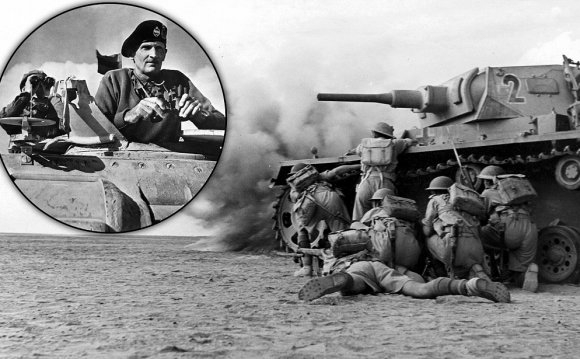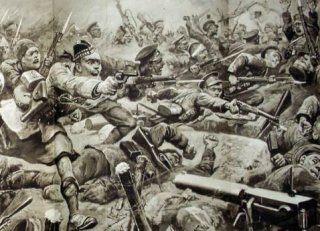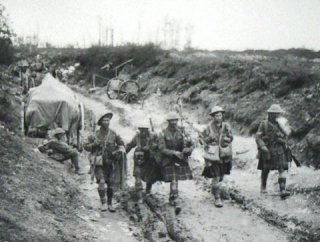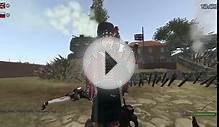
 The noise for the pipes on a Scottish battlefield echoes through centuries. The first intent behind the pipes in battle would be to signal tactical motions towards the soldiers, in the same manner as a bugle had been used in the cavalry to relay sales from officers to soldiers during struggle.
The noise for the pipes on a Scottish battlefield echoes through centuries. The first intent behind the pipes in battle would be to signal tactical motions towards the soldiers, in the same manner as a bugle had been used in the cavalry to relay sales from officers to soldiers during struggle.
After the Jacobite Rebellions, during the belated 18th century some regiments had been raised from Highlands of Scotland and also by early nineteenth century these Scottish regiments had revived the tradition with pipers playing their comrades into struggle, a rehearse which proceeded into World War I.
The bloodcurdling noise and swirl associated with pipes boosted morale between the soldiers and intimidated the opponent. However, unarmed and drawing focus on themselves along with their playing, pipers had been constantly a straightforward target the opponent, forget about therefore than during World War One when they would lead the males 'over the utmost effective' of this trenches and into fight. The demise price amongst pipers had been very high: approximately around 1000 pipers died in World War One.
Piper Daniel Laidlaw of 7th Kings Own Scottish Borderers ended up being granted the Victoria Cross for their gallantry in World War One. On September 25th 1915 the company had been preparing to 'go extraordinary'. Under heavy fire and suffering from a gas assault, the business's morale was at rock bottom. The commanding officer bought Laidlaw to start playing, to pull the shaken guys together prepared for assault.
Instantly the piper mounted the parapet and started marching up-and-down along the trench. Oblivious towards the risk, he played, “All the Blue Bonnets within the Border.” The consequence on the guys had been very nearly immediate and additionally they swarmed outrageous into fight. Laidlaw continued piping until he got near the German outlines when he was wounded. Including being awarded the Victoria Cross, Laidlaw in addition obtained the French Criox de Guerre in recognition of their bravery.
During World War II, pipers were used because of the 51st Highland Division at the start of the 2nd Battle of El Alamein on 23 October 1943. Because they attacked, each company ended up being led by a piper playing tunes that will determine their regiment within the darkness, generally their business march. Although the attack was effective, losses one of the pipers had been high and also the usage of bagpipes ended up being banned from the frontline.
 Simon Fraser, fifteenth Lord Lovat, was commander of 1st specialized provider Brigade for the Normandy landings on D-Day 6th June 1944, and introduced with him his 21-year-old private piper, Bill Millin. Given that soldiers arrived on Sword seashore Lovat dismissed the requests restricting the playing of bagpipes in action, and purchased Millin to try out. Whenever Private Millin quoted the regulations, Lord Lovat is thought to have responded: “Ah, but that is the English War workplace. You and we tend to be both Scottish, and that doesn’t apply.”
Simon Fraser, fifteenth Lord Lovat, was commander of 1st specialized provider Brigade for the Normandy landings on D-Day 6th June 1944, and introduced with him his 21-year-old private piper, Bill Millin. Given that soldiers arrived on Sword seashore Lovat dismissed the requests restricting the playing of bagpipes in action, and purchased Millin to try out. Whenever Private Millin quoted the regulations, Lord Lovat is thought to have responded: “Ah, but that is the English War workplace. You and we tend to be both Scottish, and that doesn’t apply.”
Millin had been the only man throughout the landings whom wore a kilt and then he had been armed only with his pipelines additionally the conventional sgian-dubh, or "black knife". He played the tunes "Hielan' Laddie" and "the trail toward Isles" as males all over him dropped under fire. Based on Millin, he later talked to captured German snipers which claimed they couldn't capture him simply because they believed he was mad!
Lovat, Millin additionally the commandos after that advanced level from Sword seashore to Pegasus Bridge, which was becoming heroically defended because of the men of second Battalion The Ox & Bucks Light Infantry (6th Airborne Division) who had landed in the very early hours of D-Day by glider. Arriving at Pegasus Bridge, Lovat and his guys marched across on noise of Millin's bagpipes under heavy fire. Twelve guys passed away, shot through their berets. To better comprehend the sheer bravery for this activity, later detachments of the commandos were instructed to rush across the connection in small groups, shielded by their particular helmets.
Millin's activities on D-Day had been immortalised within the 1962 film, 'The Longest Day' in which he had been played by Pipe Major Leslie de Laspee, later the queen-mother's formal piper. Millin saw further activity into the Netherlands and Germany before becoming demobbed in 1946. He died this season.
RELATED VIDEO












